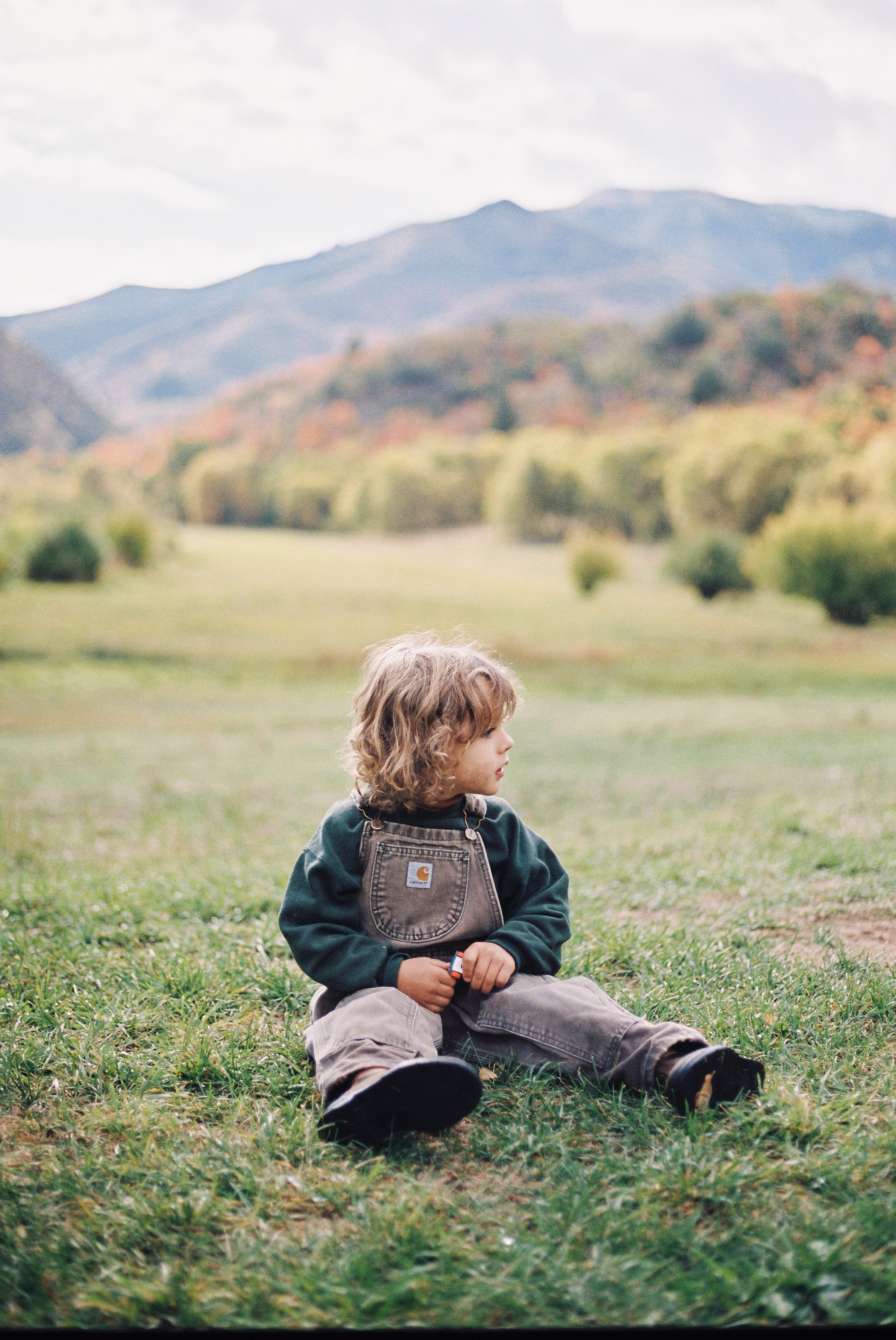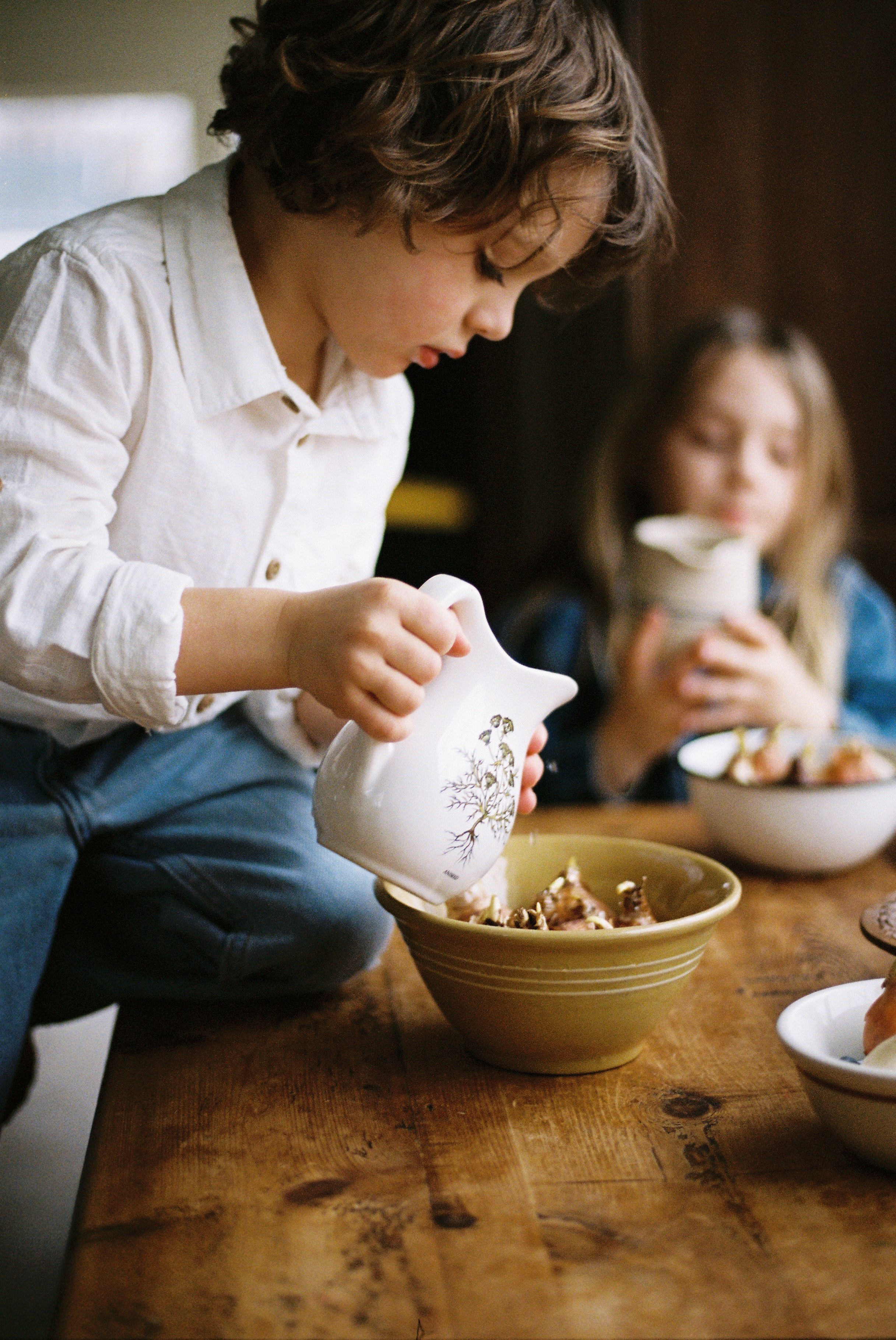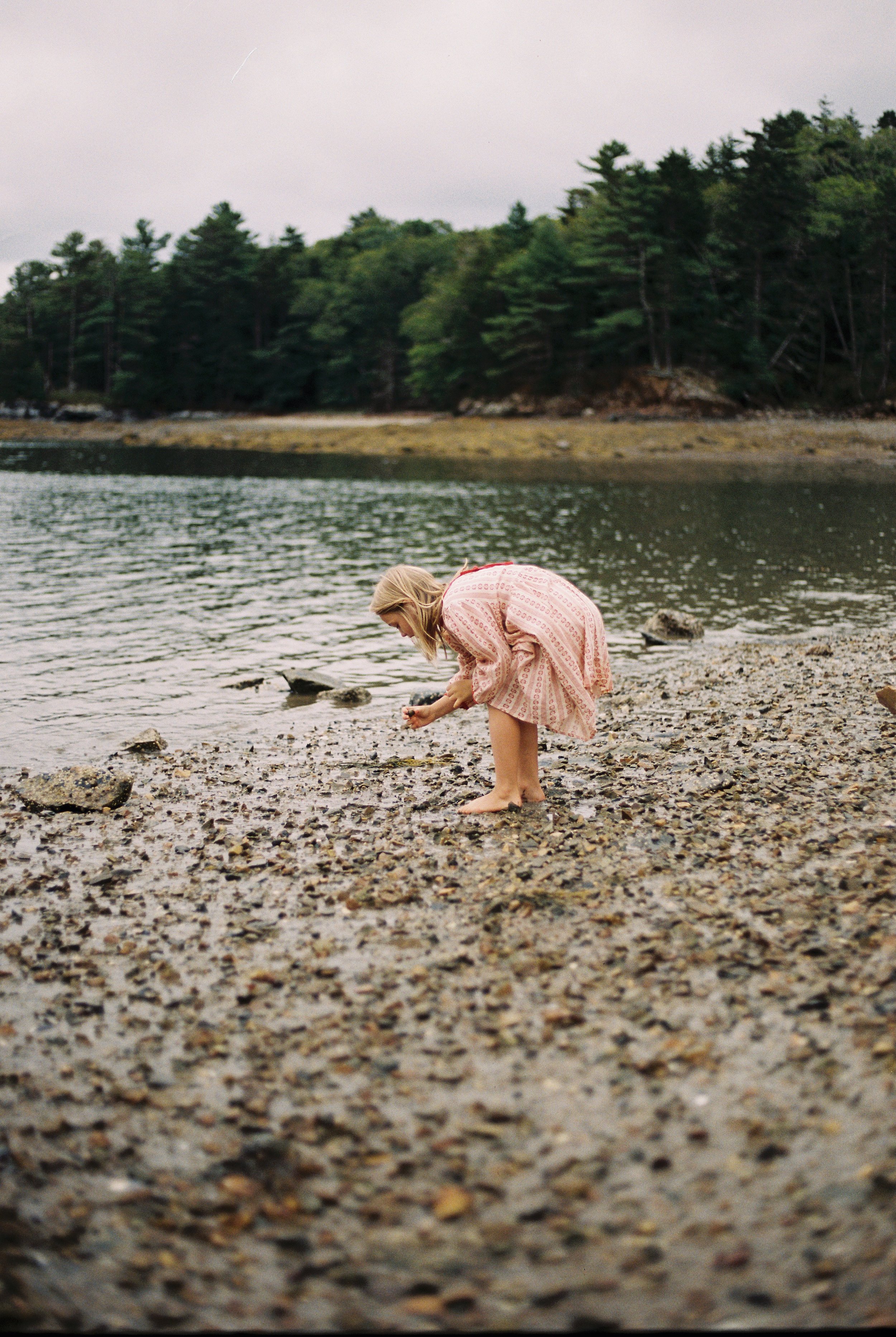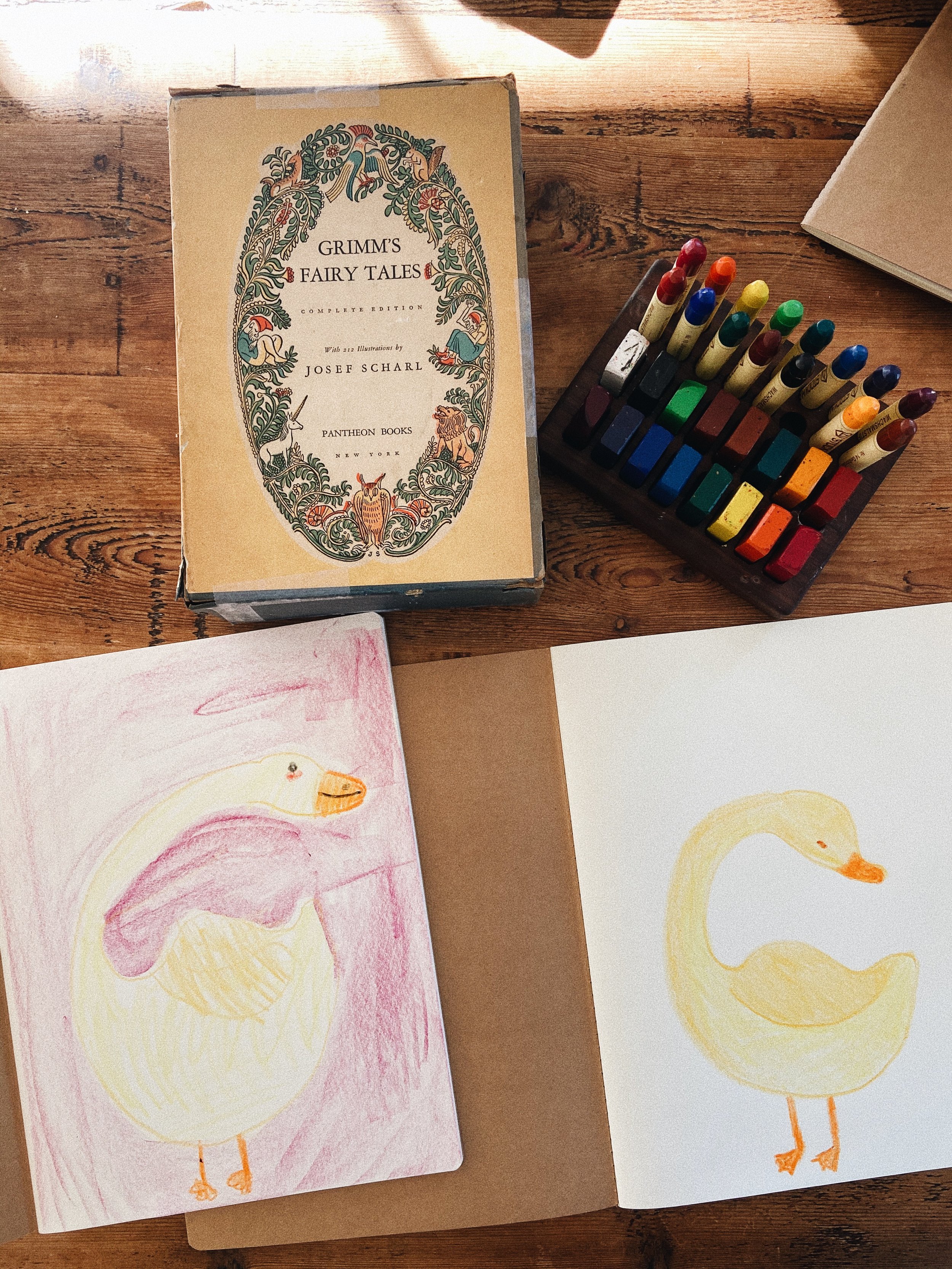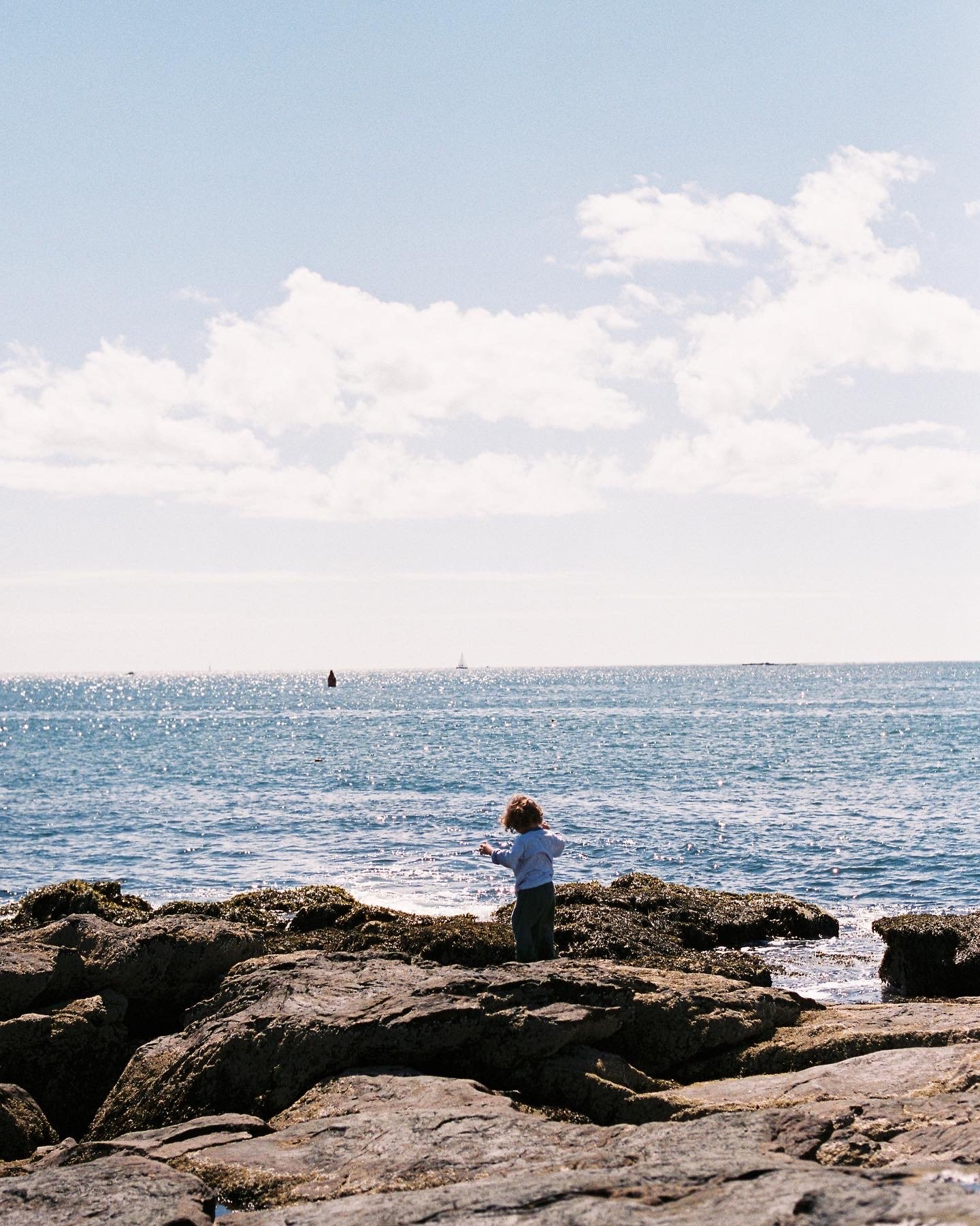
Building a foundation for lifelong learning.

Children are born with an incredible potential for growth and learning. From their very first moments of life, they are constantly absorbing new information, forming connections in their brains, and developing skills that will serve them for a lifetime. As they grow and mature, their brains continue to develop and adapt, creating new neural pathways and expanding their capacity for learning and understanding.
Similar to a seed, we don’t instruct plants on how to grow. Instead, we provide good soil, warmth, and water, and then patiently wait for the wondrous transformation to occur. As teachers it is our job to cultivate these right conditions for growth and learning.
The Kinderfolk Club draws inspiration from multiple educational philosophies and is rooted in the latest educational research. Our monthly curriculum is divided into two units, with each unit spanning two weeks. This structure provides ample time for children to explore the topic. Each week includes three well-crafted lessons, along with suggestions for play, daily routines, extension activities, and additional resources that focus on creating an environment conducive to natural learning.
Children need to feel attached and connected to their caregivers in order to learn effectively, as relationships provide safety and security necessary for the brain to develop and form new neural connections. Relationships are the foundation for learning.
Building strong relationships
Creating a safe and supportive environment
Creating a safe and supportive environment allows children to feel secure and free from fear, anxiety, and stress. When children feel safe and supported, they are more likely to be open to learning and to engage in new experiences. It also helps to foster emotional connections between children and their caregivers which is essential for healthy development.
Fostering a sense of curiosity and wonder
Curiosity and wonder are natural tendencies that children possess, and when these tendencies are nurtured, they can lead to a lifetime of learning and discovery. Children who are encouraged to ask questions, investigate, and explore are more likely to develop critical thinking skills, problem-solving abilities, and creativity. They are also more likely to be engaged and motivated learners, which can lead to academic success and personal fulfillment.
Learning through play, exploration, and experience
Learning through exploration allows children to to actively engage with their environment and develop a deeper understanding of the world around them. When children are given opportunities to explore, they can use their senses, ask questions, and make connections between what they already know and what they are discovering. In addition, learning through exploration can help children develop a sense of independence and self-reliance. They can also learn to take risks, persevere through challenges, and learn from their mistakes.
Providing opportunities for creativity and self-expression
Creativity encourages children to explore their own unique interests and talents, which helps them develop a sense of identity and self-awareness. Self-expression allows children to express their thoughts, feelings, and ideas in a safe and supportive environment, which can build confidence and self-esteem. It can also help them think outside the box and find innovative solutions to problems. When children are given the opportunity to explore and experiment with different materials and ideas, they develop critical thinking and problem-solving skills. Helps children improve their communication skills. When children are encouraged to express themselves they learn how to articulate their ideas and feelings in a clear and concise manner. It also fosters imagination and curiosity. It is important for caregivers to provide children with a variety of opportunities to explore and express creativity and individuality.
Sustainable practices
Modeling and using sustainable practices helps promote a healthy and sustainable future for the planet. By teaching children about sustainable practices and environmental stewardship, we can help them to develop a sense of responsibility and care for the environment. They can learn to think about the impact of their actions on the environment and develop creative solutions for reducing waste and conserving resources. It can also promote a sense of community and social responsibility. Children can learn about the interconnectedness of people and the environment, and they can develop a sense of empathy and concern for the well-being of others.
